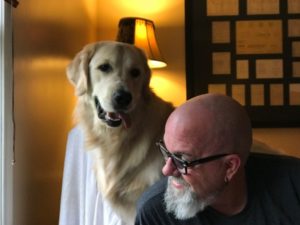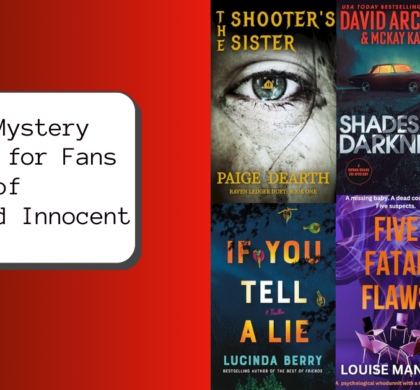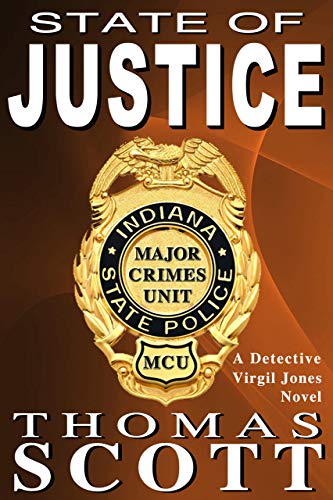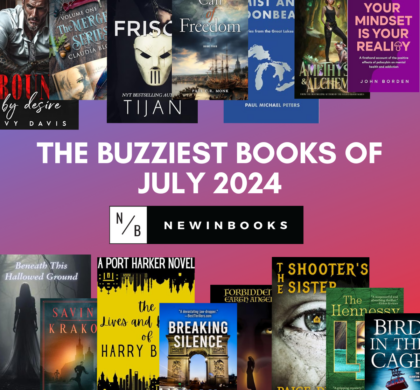Interview with Thomas Scott, Author of State of Justice
20 Oct 2020
What can you tell us about your new release, State of Justice?
State of Justice is the tenth Virgil Jones Mystery-Thriller novel, and like all the other books in the series, it is but a chapter of a much larger over-arching storyline. The main protagonists, Detective Virgil Jones (along with his adopted brother, Murton Wheeler) are special investigators for the Major Crimes Unit, working for, and answering to, the governor of the state. Each book in the series is a stand-alone novel, of course, with a complete and satisfying ending. In other words, there are never any cliffhangers. While the books can be read in any order, most readers tell me they prefer to start at the beginning of the series to better witness the character growth. All of my novels, including State of Justice, are very character driven. There’s plot, obviously, but it is used mainly to demonstrate the complexities and nuances of the individual characters…both the good guys and the bad guys. State of Justice, and the entire series is described as mystery—thrillers, but at their core, they are really love stories in their own unique way, which I find very fitting because love is at once mysterious and thrilling.
What or who inspired you to become an author?
My father was a writer, and to his credit, an avid reader of stories to me as a young child. In addition, my uncle (Dad’s brother) is a writer who attended the Iowa School of Writing and received his MFA along side his classmate, John Irving. So I’ve been around writing and writers all my life. I can’t imagine doing anything else, and I feel very fortunate to be counted among those who are able to do it for a living.
What’s on your top 5 list for the best books you’ve ever read?
At the top of the list would be James Lee Burke’s The Jealous Kind. It is without question the single most beautiful book I have ever read. Following that would be The Siege, by Stephen White, Hearts In Atlantis, by Stephen King, Dean Koontz’s Watchers makes the list, as does The Gatehouse, by Nelson DeMille. And if I can sneak one more in, it would be John Sanford’s Mortal Prey, as that’s a great, tight story as well.
Say you’re the host of a literary talk show. Who would be your first guest? What would you want to ask?
James Lee Burke. The questions I’d have for him are far too numerous to list here, but I’d really like to know what kept him going, way back when he was trying to get The Lost Get-Back Boogie published. As I understand it, that novel stayed under submission for over nine years and was rejected more than 111 times before finally being published. And when it was, it was nominated for a Pulitzer Prize. That’s an amazing story…fairly well known by most fiction writers, but I’d like to know what it actually felt like…going from all the rejection to a Pulitzer nomination. Clearly the man doesn’t have much quit in him.
What’s your favorite thing about writing?
I love this question. It’s the magic of it all…the mysticism. When I sit down to write, I don’t try to come up with a grand idea for any given novel. I simply let the characters speak to me. They tell me what the story is about, and more importantly, who the story is about. I don’t outline in advance or try to steer the story along in any certain direction. I’ve long held the belief that the stories themselves don’t come from me, they come through me, and I’m just the lucky guy who gets to type them out. Admittedly, I don’t talk about that last part very often…at least not to people other than my wife, because whenever I do, they usually give me a funny sort of look, along with a polite little chuckle before changing the subject to something much more palatable…like the weather.
What is a typical day like for you?
Spoiler Alert: I’m a regular guy, just like anyone else. I have coffee in the morning with my wife, then I’ll usually read for an hour or so, do my share of the household chores, then go into my office and get to work. I try to make it to my desk by nine (although that rarely happens) and usually finish up around four in the afternoon, then I’ll read and relax until dinner. Like that…seven days a week. I work every day, almost without exception.
What scene from State of Justice was your favorite to write?
Good question. I don’t think I could limit myself to a single scene without giving something away, but I will say this: I have two very favorite parts of any novel I’m writing. One is the very beginning. There’s nothing more satisfying (and sometimes horrifying) to sit down, type Chapter One, and then watch and wait to see what happens. The blank canvas is always fun, even if it is sometimes a little scary, sort of like a haunted house at the amusement park. But once I get rolling and the characters begin driving the story, it is an absolute joy. Of course the only thing better than all of that is the end…to be able to say I’ve done it once more. After that, I start the process all over again.
Do you have a motto, quote, or philosophy you live by?
Yeah, there are a couple. Ram Dass wrote: The whole trip occurs in an unfolding process of which we have no control. He was obviously speaking of our lives here on earth, and I’ve found that statement to be very true. The other comes from Dean Koontz’s novel Life Expectancy. He opened a chapter with this: No one’s life should be rooted in fear. We are born for wonder, for joy, for hope, for love, to marvel at the mystery of existence, to be ravished by the beauty of the world, to seek truth and meaning, to acquire wisdom, and by our treatment of others, brighten the corner where we are. No one can grant you happiness. Happiness is a choice we all have the power to make. I absolutely love that passage. The power of words amazes me. It’s why I read. It’s why I write. It’s why I’ll never quit. Thanks for listening.

Thomas Scott is the author of the new book State of Justice.
Connect with Thomas
Author Site
Buy The Book
Sign up for our email and we’ll send you the best new books in your favorite genres weekly.
Related
grant
Recommended Posts

New Mystery Novels for Fans of Presumed Innocent
26 Jul 2024 - Books to Read if You Like..., eBook, Mystery, News, Thriller

New Romance Novels to Steal Your Heart
26 Jul 2024 - Books to Read if You Like..., eBook, News, Romance

